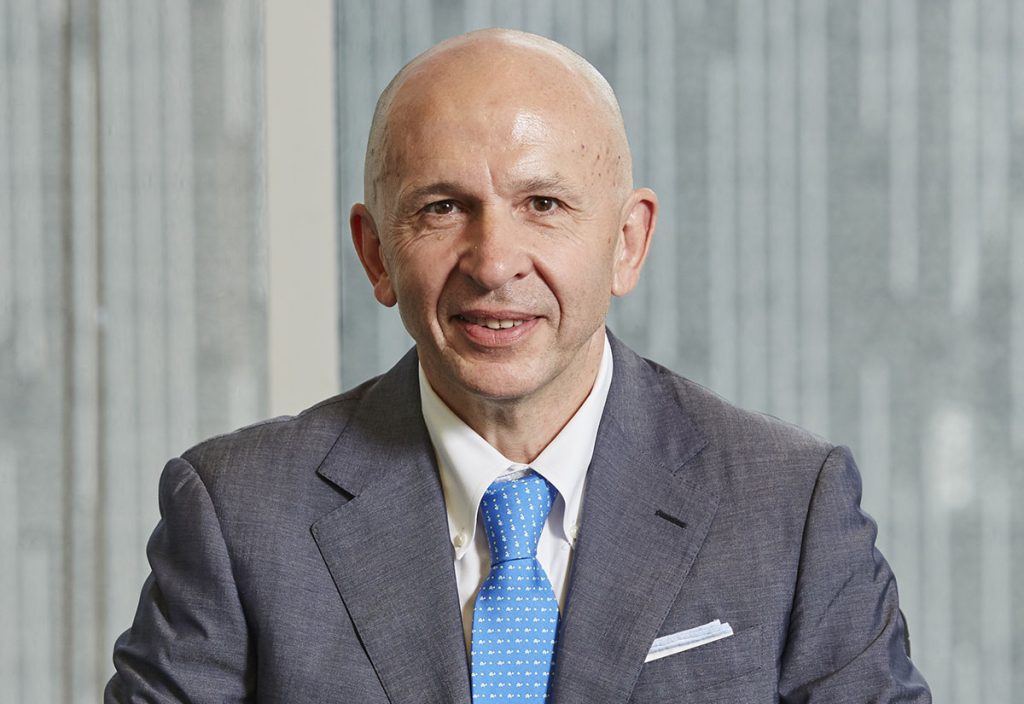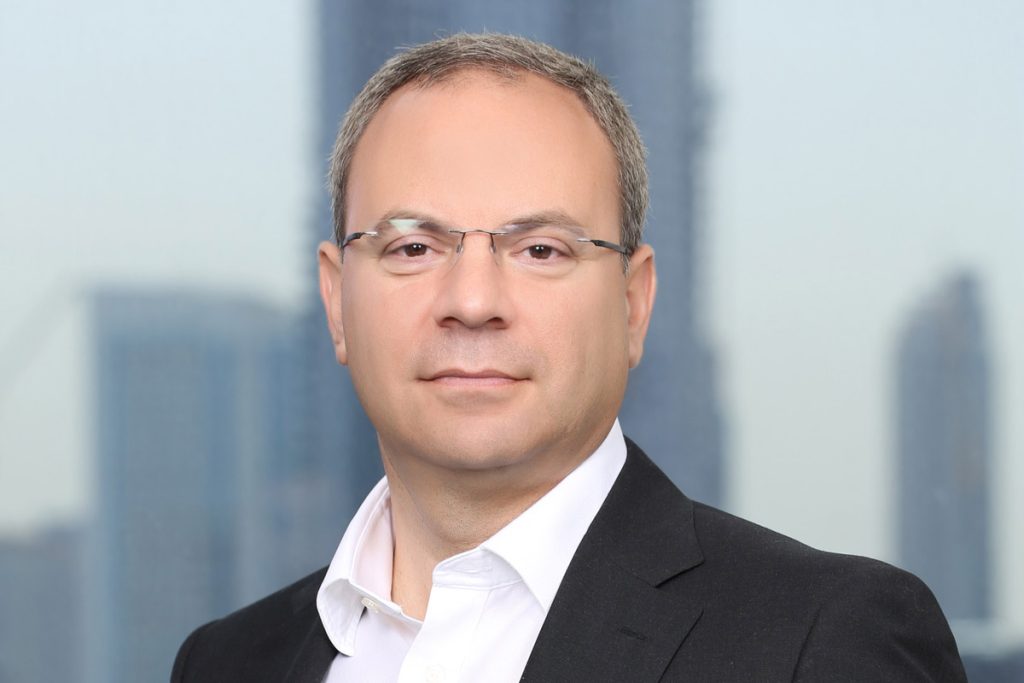Optimism in the Middle East is rising but bosses need to plan for a different future than the one they faced before coronavirus with digital transformation, the future of work and the need to innovate how success is delivered all shaping the landscape ahead.
A powerhouse round table of leaders gathered to discuss the Middle East findings contained within the 25th CEO Survey by global professional services giant PwC in its annual sentiment snapshot of the boardroom.
For its annual global survey, PwC surveyed thousands of CEOs in 89 countries and territories in October and November of 2021. The Middle East research, revealed today, painted a rosier picture than the year before with more than 8 out of 10 CEOs feeling the confidence, higher than the global average, and up 10 percent on the year before.
To unpack the research a panel consisting of Hani Ashkar, Middle East senior partner, PwC Middle East was joined by Elda Choucair, chief executive officer at Omnicom Media Group MENA, Nabil Habayeb, senior vice president GE, president and CEO, GE International Markets and Luciano Poli, president Dow India, Middle East, North Africa and Turkey (IMET) at The Dow Chemical Company).
The first topic on the agenda was the rising optimism and whether that was a shared experience among the business leaders.
How are you feeling about the confidence levels? Are you sharing that short term optimism?
NH: We definitely share the optimism especially with the transformation the UAE has been going through over the last few years. As you know, GE has worked to strengthen our business and we recently announced our plans for creating three independent companies by 2024, focused on industries that really make a difference in this part of the world – energy, aviation, and healthcare.

We’ll be focusing on the future of aviation, on energy and the energy transformation, and on healthcare and precision health. These are areas that touch on topics that were highlighted in the CEO survey and we can have a huge impact here. So we’ll look at a lot of growth, especially as we position these companies for the spin-off. So yes, we share the optimism, and this is the right market for us to realize that.
Luciano has this region now priced in coronavirus as conversations move from pandemic to endemic? What do the next 12 months look like?
LP: I share the view of my colleagues’ optimism- As we move towards the endemic we see that even countries that have high cases like in Europe, the situation is still clearly improving.
I believe we are moving into a strong 2022, clearly with challenges and issues that we all need to take care of, but I believe that the business environment is good. Especially now as communication and interaction between governments, industry and corporations are good. We see more open discussions, a strong willingness to engage in ecosystem dialogues, to a more competitive pro-business type of environment, which is very positive for the demand creation.

Do you think the messaging that’s coming out of this region has put it to the forefront for international investors and businesses?
EC: Definitely, you can see that there are certain events and even campaigns on the streets of Dubai that have played well, like the World’s Coolest Winter. The government’s made a massive effort to grasp opportunities and reach the world.
I think from a communications and advertising industry as a whole there is optimism. Typically media and advertising reflect the activity in the economy. The first budgets cut are the advertising budgets when there is a problem. The hit in 2020 was really shocking, we’ve never seen that in the history of advertising and media, globally and locally.
When we talk about this optimism, it is optimism towards recovery, because we’re not there yet, not compared to 2019, to 2018. In fact, if you look at top advertisers you will see a different list today, the players are different players. Even the game is different because they are playing in a different field, they are competing for a different kind of exposure.

So I think today, there are so many challenges, especially to understand where we go from here. Definitely, there’s optimism towards recovery, but it’s towards a world that is new.
Do you think 2021 was a year of recovery? Or was it putting the foundations and we’re about to leap into actually what is a year of recovery and it’s 2022 is when CEOs get that mojo back?
HA: I think 2021 was setting that foundation for what is a different world today. That world is a world where there are lots of opportunities, but to address those opportunities you have to change the way that you work, the way you operate, the way you deliver.
And if I bring that to life a little bit, you know, our business was thousands of people, charging time to projects, employed full time, mainly working in person. In 2022 it’s becoming quite clear that this is not the future of work. There will always be full-time employees working more flexibly of course, but increasingly there will be contingent workers that work on a project by project basis.

Some people will be in delivery centres, using technology to deliver more efficiently from say, Cairo or Amman or India. Some of what we do has been completely automated and digitized, the crunching of numbers is using new digital technologies to process, analyze and present information in new, live and interactive ways.
The great news is that human elements – teamwork, relationships, communicating insights are more important than ever. So the opportunities are there, but we’ll need to change ourselves to succeed in this new environment.
We still haven’t landed on the future of work and what it looks like. We’ve experimented with fully virtual, we went from fully physical to fully virtual and we are now somewhere in between. I think what we’re realizing is that people now want a hybrid experience. They want flexibility but they need physical interactions to build culture, to expand networks to understand the human part of it as well. It’s been quite interesting, I think we’re going to land somewhere in between, it’s definitely going to be that hybrid model.
NH: From our organisation, when we talk about being out in the energy sector or the aviation sector or the healthcare sector, we are and have been out there on the front lines with customers. You have got to be physically there serving in these critical industries and that’s what we’ve done. We helped to keep hospitals going, the cargo flights flying and the power plants running so there’s that element of it.
However, for the supporting functions, it’s exactly as Hani says – it is the hybrid model that is working at this stage, out of the personal preference.
Having said that, I think for the period before Omicron, a lot of people who came back to the office really liked that interaction. So, I see more of a shift towards the physical part of it as people feel more comfortable moving into an endemic. Moving into a world where more people are vaccinated and hopefully variants are less contagious, will allow people to shift more into the physical which is really critical for interaction, especially for entry-level people.
LP: What I’m seeing if we talk about the positive side of this crisis is that there has been some acceleration in certain areas for sure. In the past, we thought we could not work remotely but we have done it, and done it well
I think we now have more courage in doing things that are outside the box. So that’s the reason that I feel that when this crisis is eventually over, some of the resilience, energy and curiosity that we have shown in solving problems hopefully is going to stay.








